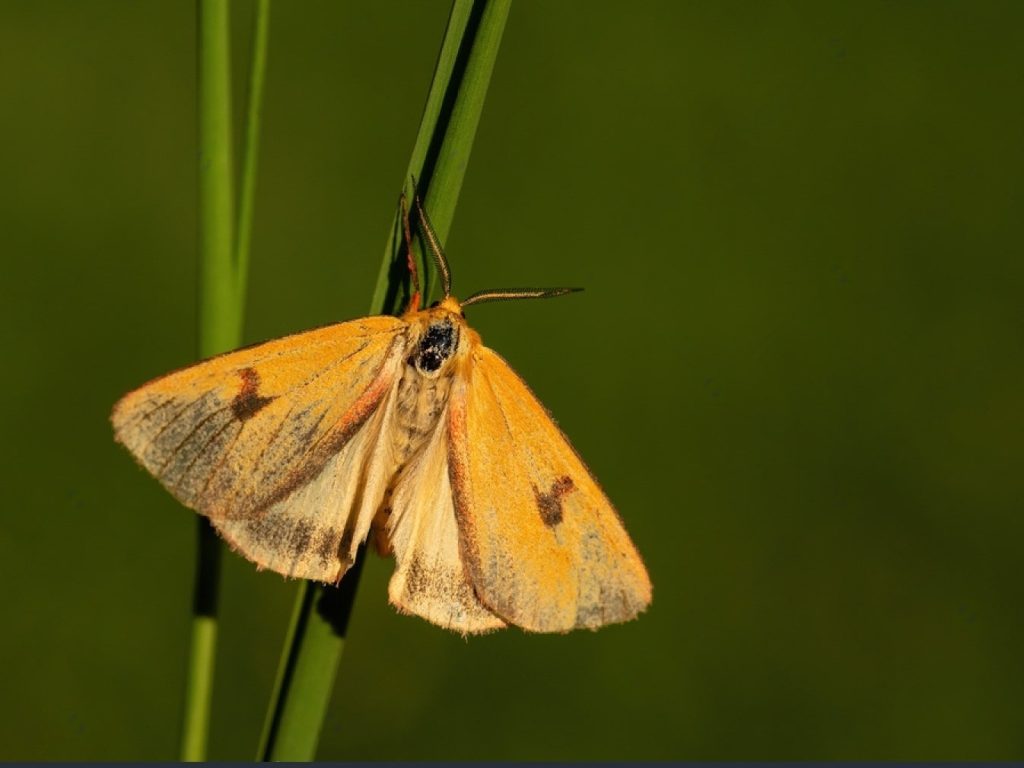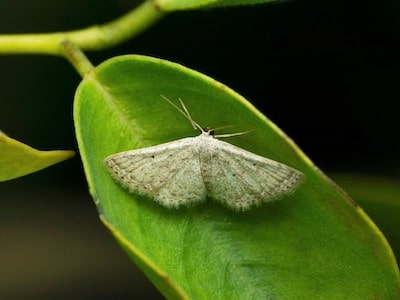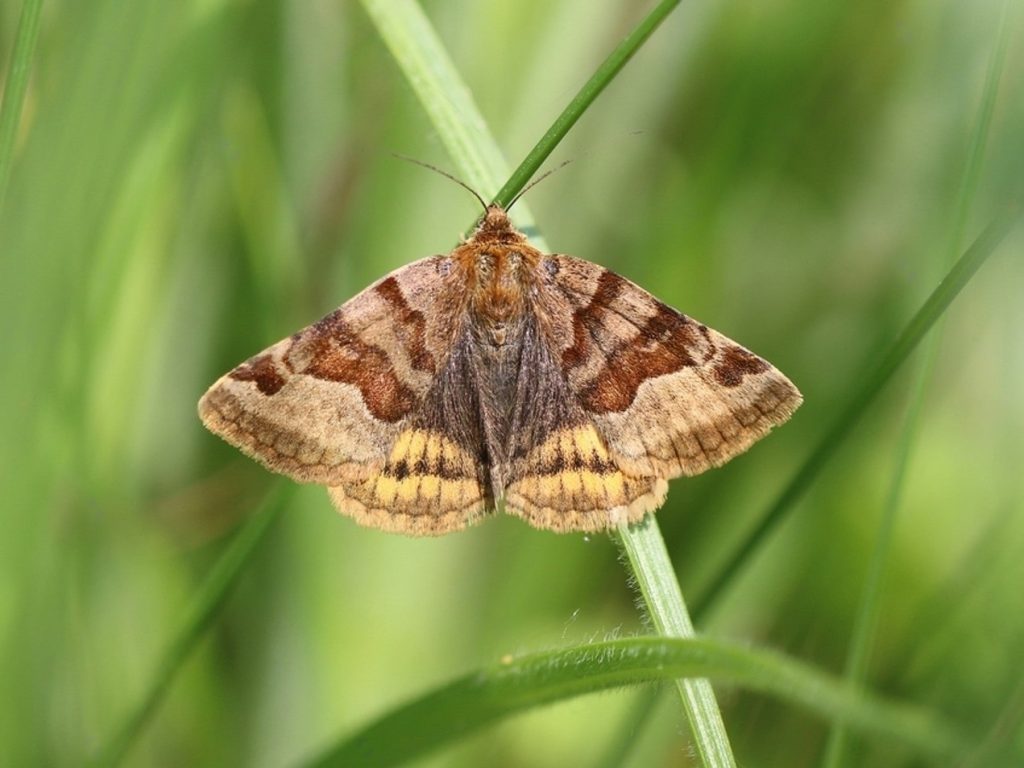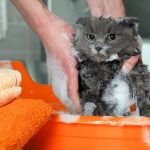Have you ever paused to marvel at your cat’s impressive hunting skills as it chases and captures a moth in your home? It shouldn’t come as a surprise, cats are natural predators with an inherent desire to hunt. But is it safe for them to eat the moths they catch?

After all, moths are insects, and cats are carnivores; could this be the perfect snack for them? As a responsible pet owner, you must consider if this is truly beneficial for your feline friend.
In this article, we’re going to delve into the fascinating topic of cats and moths. We’ll explore the potential risks and benefits of your cat eating moths. So, get ready to learn more about your cat’s natural instincts and discover whether moths are a safe and healthy treat for your pet.
Contents
What Are Moths And Why Do Cats Like Them So Much
Belonging to the order Lepidoptera, moths are a type of insect commonly found in habitats around the world, such as forests, fields and even inside homes. Distinguished by their powdery wings and fuzzy bodies, moths come in various sizes, colors and patterns.
So, why do cats like moths so much? Cats are natural hunters and have an instinct to chase and capture anything that moves. This explains why cats have such a strong affinity for moths; the small, erratic flying insects make ideal targets for their hunting skills.

Moths not only move in a fluttery manner, but they also produce a high-pitched sound that cats can detect and be attracted to. Moreover, the scent of moths or the dust they leave on surfaces could also draw cats’ attention.
Moths, active at night when cats are most alert, often become prey for them. Thus it is understandable that a cat may feel proud and satisfied with its hunting skills after catching one of these nighttime creatures.
It is important to be mindful of cats’ safety and well-being while they are hunting and catching small prey, as this may present certain health risks. We will explore this topic in more detail in the following sections with a focus on the potential hazards posed by consuming moths.
Are moths safe for cats to eat?
It’s important to consider whether moths are a safe food for cats to consume, even though cats are known carnivores and moths are an insect. While ingesting moths is not toxic for cats, there may be other risks associated with them eating this type of food. According to 21org “Moths are also low in calories but high in protein compared to most meats like beef or chicken.“
Moths may present a significant risk to cats, as they can carry parasites or diseases such as tapeworms, come into contact with pesticides or other harmful chemicals which could be toxic if ingested, and some species have spines or barbs on their wings that can cause irritation or injury to your cat’s mouth and digestive tract if swallowed.

Moths are not nutritionally beneficial for cats, so it is generally not recommended to let them eat them even though they may enjoy the hunt and capture of a moth. Furthermore, eating moths will not provide any significant nutritional benefits.
If your cat has ingested a moth and is displaying symptoms such as vomiting, diarrhea, or lethargy, it is imperative that you contact your veterinarian immediately. Your vet will be able to identify the source of your cat’s symptoms and provide suitable treatment.
To conclude, although moths do not cause harm to cats, it is still advisable for cat owners to stop their pet from consuming them. It would be best if they provide a safe and nutritious diet that meets the nutritional needs of their cats.
Potential Risks and Benefits of Cats Eating Moths
As we mentioned earlier, there are some potential risks and benefits associated with cats eating moths. Let’s take a closer look at each.
Risks:
- Parasites and Disease: Moths can carry parasites or disease, such as tapeworms, which can be harmful to your cat’s health.
- Toxic Chemicals: Moths may come into contact with pesticides or other harmful chemicals that can be toxic to your cat if ingested.
- Injury or Irritation: Some species of moths have spines or barbs on their wings that can cause irritation or even injury to your cat’s mouth or digestive tract if swallowed.
- Nutritional Deficiencies: Moths are not nutritionally valuable to cats, and eating them will not provide any significant nutritional benefits.
Benefits:
- Mental Stimulation: Chasing and catching moths can provide your cat with mental stimulation and physical exercise, which are important for their overall well-being.
- Instinctual Behavior: Hunting is a natural instinct for cats, and catching moths can satisfy this instinct and provide a sense of satisfaction for your cat.
- Natural Insect Control: While it’s not recommended for your cat to consume moths, having them around can help control other insect populations in your home.
What to do if your cat eats a moth
As Per 21org “Cats will generally only eat about one moth a week or every few days, so this is relatively innocuous.” If your cat eats a moth, it’s important to monitor them for any signs of illness or discomfort. Here are some steps to follow if you suspect that your cat has eaten a moth:

- Observe your cat: Watch your cat closely for any signs of discomfort or illness, such as vomiting, diarrhea, lethargy, or lack of appetite.
- Check the area: Look for any leftover pieces of the moth or debris that may have been left behind, and remove them from the area to prevent your cat from eating them.
- Contact your veterinarian: If you notice any symptoms or if you’re concerned about your cat’s health, contact your veterinarian right away. They can advise you on the best course of action based on your cat’s individual circumstances.
- Provide plenty of water: Make sure your cat has access to plenty of clean, fresh water to prevent dehydration and aid in digestion.
- Watch for signs of parasitic infection: Moths can carry parasites or disease, so it’s important to keep an eye out for any signs of infection, such as tapeworms or other intestinal parasites. If you notice any of these symptoms, contact your veterinarian for treatment.
FAQs
Why do cats like to catch and eat moths?
Cats are natural hunters, and catching and eating moths satisfies their instinctual hunting behavior. Chasing and catching moths can also provide mental stimulation and physical exercise for your cat.
Are there any nutritional benefits to cats eating moths?
No, moths are not nutritionally valuable to cats and do not provide any significant nutritional benefits.
Can moths harm my cat’s fur or skin?
No, moths do not pose any harm to your cat’s fur or skin. However, some species of moths may have spines or barbs on their wings, which can cause irritation or even injury to your cat’s mouth or digestive tract if swallowed.
Are there any other insects that are safe for cats to eat?
While moths are not recommended for cats to eat, there are some insects that are safe for cats to consume, such as crickets, grasshoppers, and mealworms. However, it’s important to ensure that the insects are free from harmful chemicals or parasites and to offer them in moderation as a treat rather than a regular part of your cat’s diet.
Conclusion
In conclusion, while moths may seem like harmless prey for cats, there are potential risks and health concerns associated with cats eating moths. It’s important to be aware of these risks and take steps to prevent your cat from eating moths, such as keeping them out of your home and providing them with other ways to satisfy their hunting instincts.
If you suspect that your cat has eaten a moth and is experiencing symptoms such as vomiting, diarrhea, or lethargy, contact your veterinarian right away for advice on how to proceed. By being proactive and informed, you can help keep your feline friend safe and healthy.
Charlene Pare is the founder of Cat Likes Best. She manages and strategizes the content published on this website. When she isn’t working, she enjoys exploring the city around with her Ameican Shorthair kitty–Moli. Being a technocrat and an avid cat lover, she also writes on pet tech products and some of the featured articles.





